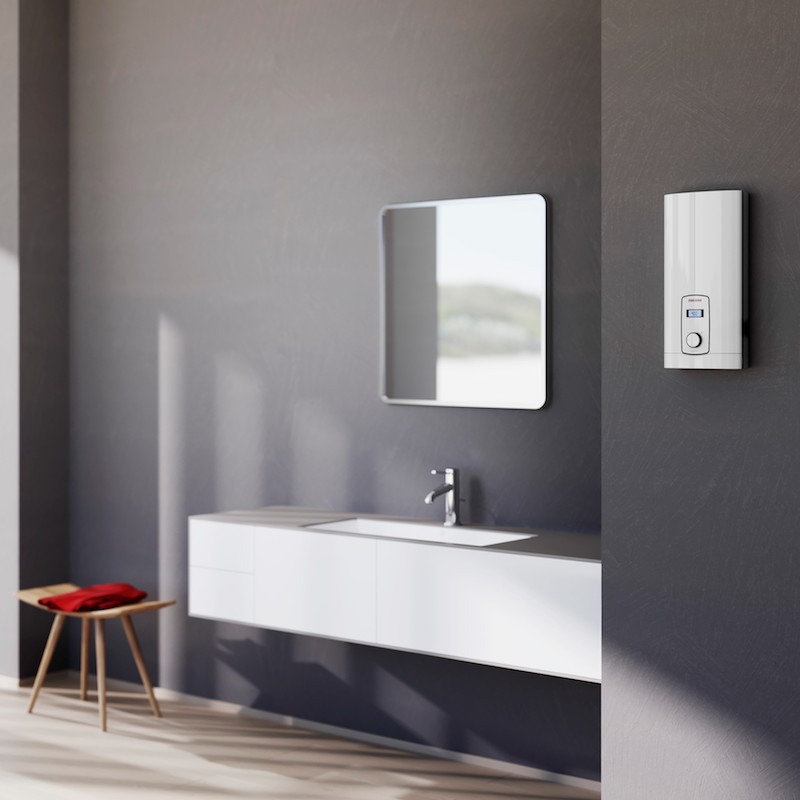Decentralised Hot Water Systems Way of Future
Decentralised systems are the future for renewable and affordable hot water in urban households.
They save space and maximise returns, among other advantages, according to Stiebel Eltron, a German global innovator and manufacturer of sustainable water heaters, renewable energy and home comfort solutions.
It is proof of viability with over seven hundred apartment buildings completed and many repeat developers around Australia in the last twenty years.
Headquartered in Melbourne, Stiebel are injecting futureproof hot water technology into urban projects.
As of June 2020, the Australian Bureau of Statistics reports, two-thirds of Australians are living in greater city capitals.
The numbers are telling of the changing residential landscape towards a sustainable, comfortable and value-for-money lifestyle.
In fact, Energy Australia suggests by shifting to water-efficient products in the next nine years, Australians could save $2 billion nationally, an annual saving of $175 per household.
The report confirms water heating is the second largest use of household energy—between 15 to 27 per cent—and the largest source of greenhouse emissions—up to 25 per cent for an average Australian home.
Architects and developers can assist to reduce high emission rates by incorporating instant hot waters heaters powered by renewable energy sources. Additionally, they cater to the need for more space, sustainable water usage and the reduction of running costs.
“They are the best systems that I have seen in 20 years. I have managed a lot of buildings and this is the easiest by far. Because there’s no gas, it’s safe.”, building manager of the Vogue South Yarra Apartments in Melbourne Delon S said.

Why decentralised systems are on rise
Traditional central water systems are bulky and can take up valuable communal spaces.
By comparison, a compact decentralised system can free up space on the building’s roof or underground area for amenities while providing major cost savings for occupants.
Stiebel Eltron’s three-phase systems, DHE AU, DEL Plus and DHB-E LCD, are ideal for apartments as they are placed close to the points of use, making hot water instant and ongoing maintenance easier, Delon said.
“I have zero hot water maintenance costs. Checking meters manually and trying to get the hot water bills right … that’s old fashioned, I don’t need to manage bills now. It’s billed accurately and the tenant pays their share,” he said.
“The temperature control is also good. With a 50-degree model, there’s no need for a tempering valve as they fail after a few years, so we don’t have to worry about that.”
Some heaters also boast digital displays showcasing energy, water and carbon dioxide savings. Bluetooth control innovations are also in the works.
Aside from being eco-friendly, economical and design-centric, they are also bacteria-free, particularly from the risks of Legionnaires’ disease, (a type of pneumonia caused by bacteria found in centralised systems).
Stibel Eltron’s research, which has been as confirmed by The International Energy Agency, expects electricity generation from renewable energy sources to increase by 33 per cent by 2040, up from 21 per cent.
Given the advantages these systems bring, backed by the success of the installation and operation of almost 500 water heaters at the Vogue South Yarra Apartments commercial project in Melbourne, the time is ripe to adopt this home technology that’s fit for the future of urban.
The Urban Developer is proud to partner with Stiebel Eltron to deliver this article to you. In doing so, we can continue to publish our daily news, information, insights and opinion to you, our valued readers.














